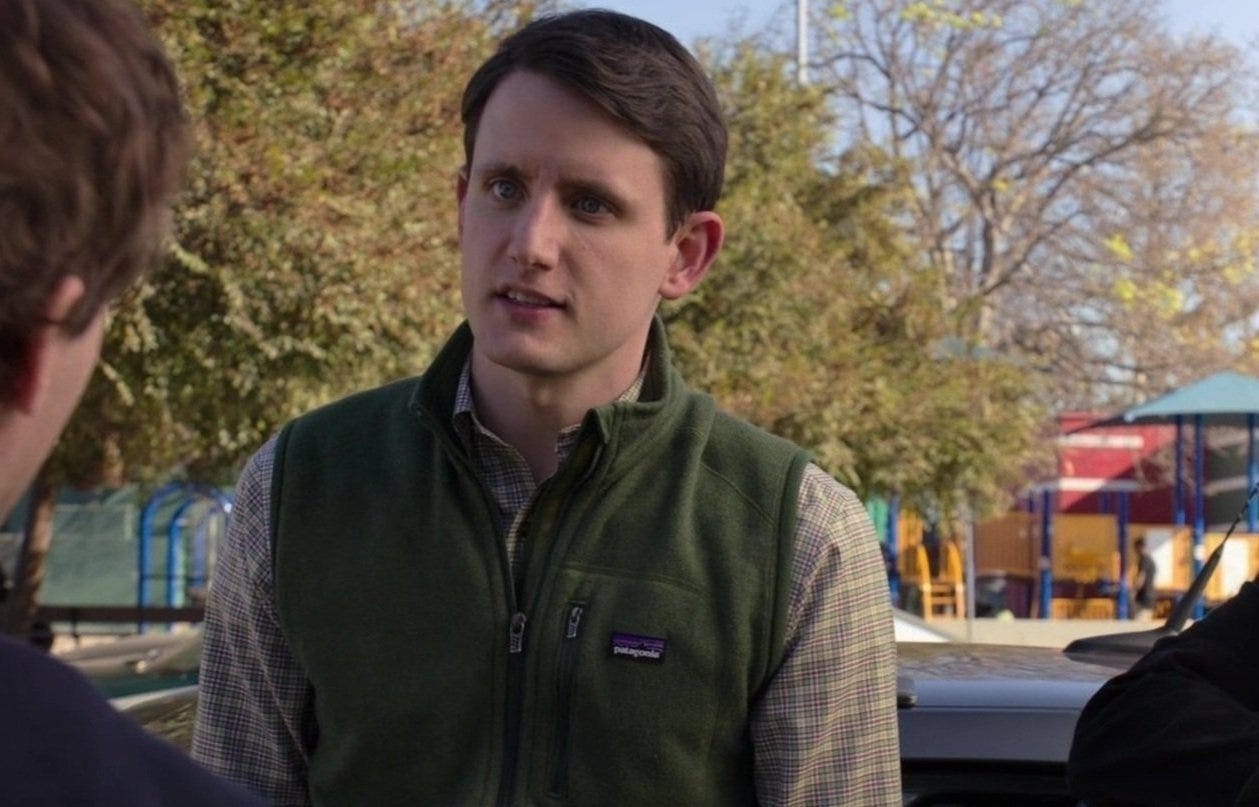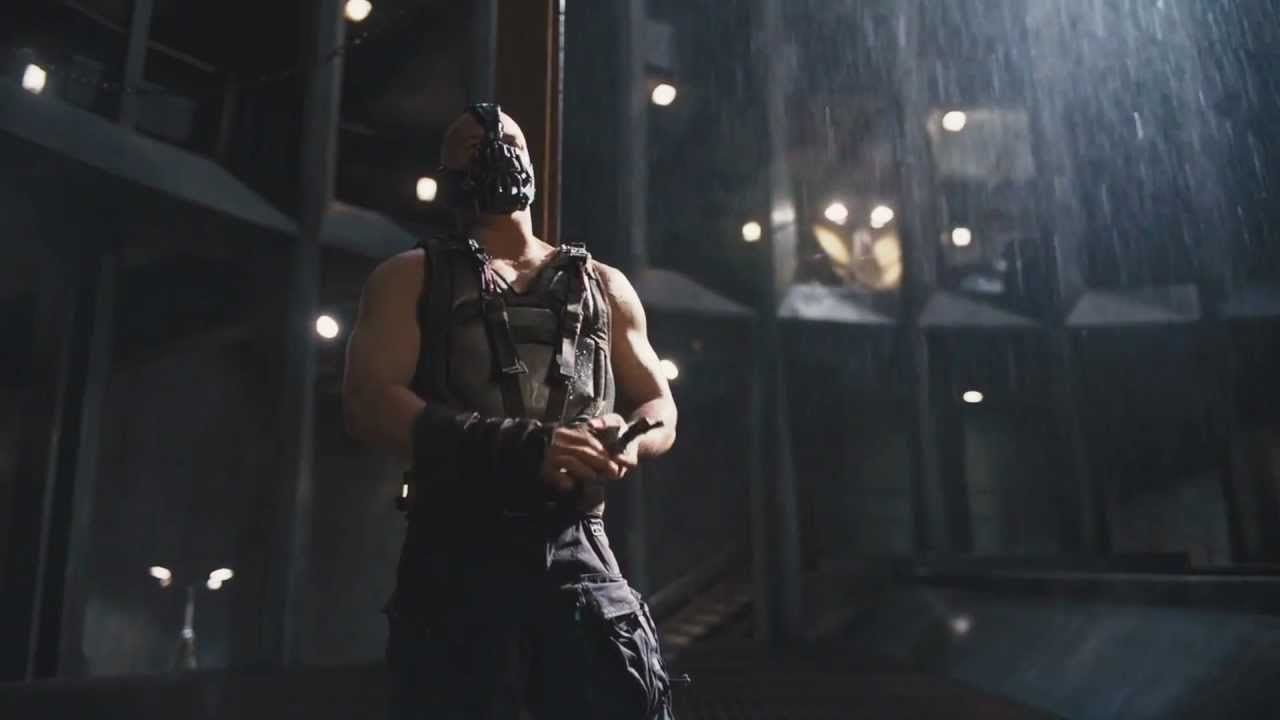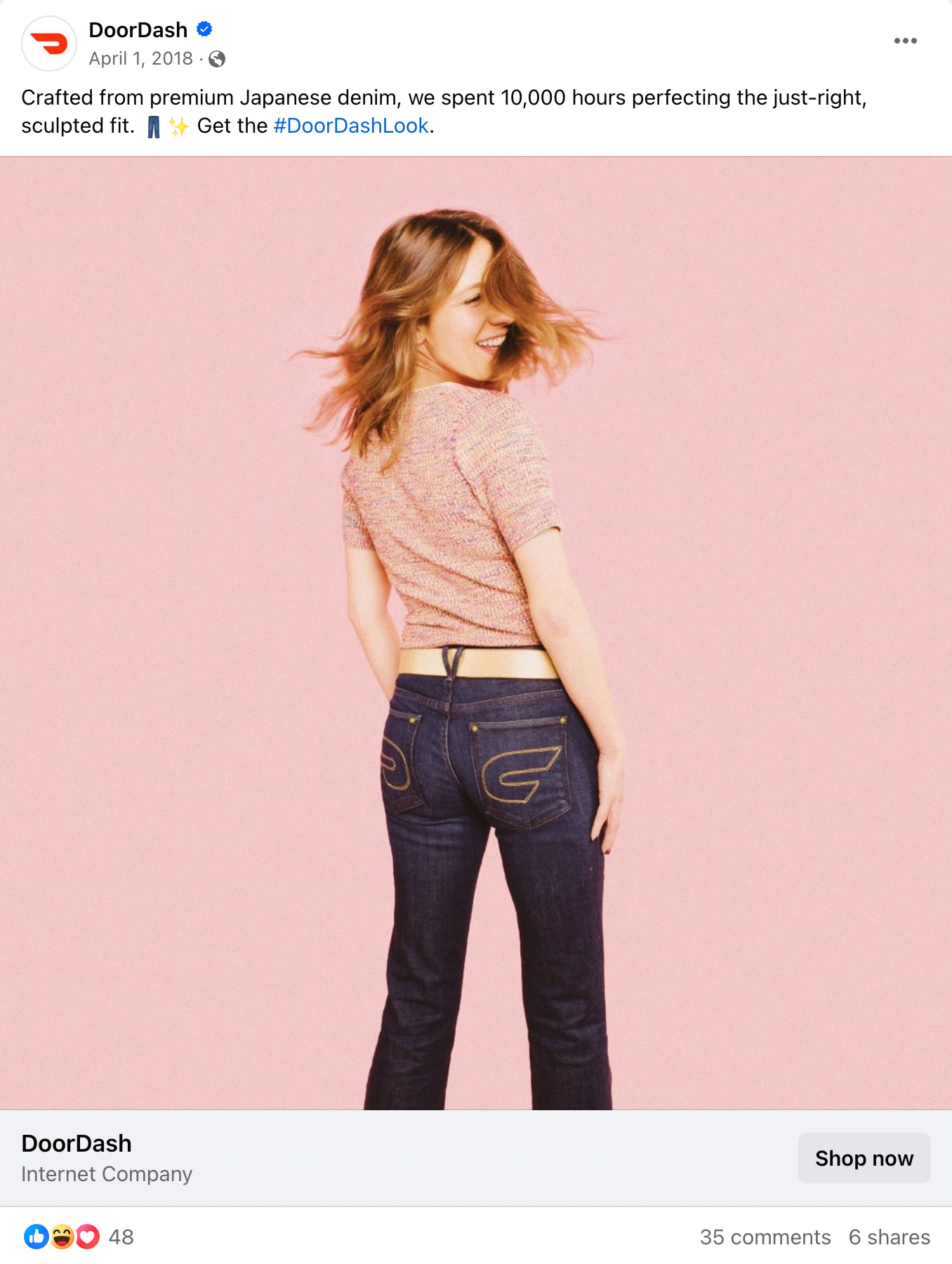No fun city.
Sending your boring-ass startup straight to the moon.
My first day at DoorDash, on the 23rd of January, 2017, I rocked up to a near-windowless, square building on the frontage road of I-35 in Austin. Or I would have if I could have parked inside the imposing and apparently-required 10 ft. security gate. The rent on this property, I’d later learn, was $8 every three years so long as we did all our own pest control.
I’d only sat there a minute before an energetic young hipster emerged, opened the gate, and motioned to his parked Toyota Tacoma. “Get in loser, we’re going shopping.”
I, in an extremely cool J. Crew oxford, got in.
It turns out we were shopping for only one thing, and that thing was my desk. And by desk I mean one $19 size-small folding table. We were in and out of Walmart in no more than 5 minutes and back inside our burnt-orange, 81 sq. ft. office in under 10.
And that was my first exposure to life at DoorDash, a series C company with $127M in the bank. I imagine their series B office was a Greyhound bus shelter and series A was wherever it was that Bane lived in The Dark Knight Rises.
The point here isn’t to say that DoorDash was cheap - it was - but rather that these kinds of choices were central to a culture wherein every possible dollar available was spent externally on the company’s customers: funding consumer, Dasher and merchant acquisition, building great new products, and providing the very best service possible.1
The end result: while we may never have had a rooftop cocktail lounge, free dry-cleaning, or an in-house yoga master to help align our chakras, we did ultimately succeed in building an incredible business.
The Murder Inn
I lied. The above wasn’t my first day at DoorDash. No, my actual first day was two weeks prior, when I found myself at the Austin airport, waiting for a flight to San Francisco, to begin 14 days criss-crossing the country, meeting and training with the rest of the company’s operations team. “How awesome is this,” I thought. “Flying to San Francisco to start at a real, honest-to-goodness tech company!”
That excitement ended once I arrived, as my Lyft2 slowed to a halt on Market St., outside of a building that, insofar as I could tell, could have been any number of things except for a hotel. “Yup, this is it,” I heard from the front seat, as I was effectively booted out onto the curb.
Couple quick notes about this hotel. First, the check-in desk was behind metal bars, which gave a real ‘I’ve finally earned enough working down in the laundry to afford a new bar of soap from the commissary’ vibe. Second, yes there was a lobby bathroom but also yes you would need a key for it. And finally, it was the only hotel room in my life where I could, from laying flat on my bed, reach out and open the door.
Moral of the story: We will not spend our VC money on any hotel that might conceivably have bathrobes, a points program, or “housekeeping”.
🎶 This is, the part when, this ain’t free 🎶
Later that first month our entire Texas operations team met in Austin to plan out our next couple of quarters. Lacking sufficient space in our tiny working cube, we set up shop in the surprisingly ample reception area we shared with our architect/ bail bondsmen officemates.
After a couple hours plotting our expansion ambitions, one of my colleagues poked his head up. “Anyone else getting thirsty?” There were nods all around, and we headed for an antiseptic watering hole at the nearby SoDoSoPa-esque Domain shopping district.
And toss back a few, we did. The group shared war stories, ragged each other, spat out every reason under-the-sun that we’d eventually triumph as a business. Someone pulled out a laptop and tried to get the bar manager to sign a DoorDash partner agreement on the spot. It was fantastic; good vibes all around.
That all stopped when the check came.
I, having only very recently departed a career in management consulting, made the wild decision to ask my manager if the tab “was on Uncle Tony,” a reference to, of course, my then-boss’s, boss’s, boss’s boss. I was returned a quizzical if not flummoxed look that said many things, not least of which being “uh, #$%^ no, Steve, we are not spending the acquisition cost of 4-5 new DoorDash customers on a dozen pints of Electric Jellyfish, are you out of your actual mind?”
Moral of the story: We will not spend our VC money on a few rounds of cocktails until a few rounds of cocktails aren’t the difference between a new market making or missing its weekly growth goal.
You work at Jordache?
Like, the jeans?
If I was asked whether I worked at the 80s denim phenomenon Jordache once, I was asked 1,000 times.
And there was a reason for that: while our competitors were spending on celebrity endorsements and Super Bowl ads, DoorDash was methodically deploying capital into known, measurable, boring customer acquisition channels. (I think Craigslist was where we acquired most new Dashers for several years).
Was it admittedly frustrating seeing Postmates pop up constantly on Kylie Jenner’s instagram feed? Yes. Was it even more frustrating watching Uber Eats put out a huge ad campaign with Kim Kardashian? Also yes. Am I oddly obsessed with that one family? That’s really not the point. The point is that it was ultimately far more satisfying watching our volume ticker spike every time we sent out a very unsexy direct-mail campaign to another overlooked suburb, than it would have been getting Gary Busey dressed up in a red t-shirt and hat.
Moral of the story: We will not spend our money on high ego, low impact advertising, no matter how totally awesome it could feel to do so.
It’s one banana, Michael, what could it cost, $10?
In running customer service at DoorDash most of my early tenure was griping about how I couldn’t get even a drip of engineering time. That was, until one day, my boss straight up told me, “Steve, the ROI on an engineering hour to build something that helps us grow revenue is at a minimum 10x higher than what you’re currently asking for.” And he was absolutely right; the company was in a bare-knuckle fight to win one of the most competitive markets in history and wasn’t going to succeed if it didn’t ruthlessly and dispassionately prioritize how it allocated all of its finite resources.
Moral of the story: We will not let our most expensive people spend their time solving our least valuable problems.
Massive caveat: If you’re gonna be cheap, you must then win.
Every good goal has a constraint and that’s certainly true in this case. How was it that so many talented people were happy working for such a thrifty, largely unknown startup for so long? Very simply, it was because the company was always either winning or, at very least, imbued with a winning energy. There was a story, a culture, a through-line for why it was critical that we remain so unbelievably efficient and what it would mean when that strategy was inevitably successful.
Fast forward to today and that same company has 66% of the US meal delivery market, is worth about $40B, and can now finally allow its employees to travel on the inside of the airplane.
I even think an early version of DoorDash’s values highlighted the importance of “finding natural funding sources”, or, in other words, “if at all possible, get sh$# for free.”
If the company was barely willing to pay for hot water in the office you can believe they’re not sending a penny across the street to Uber.




